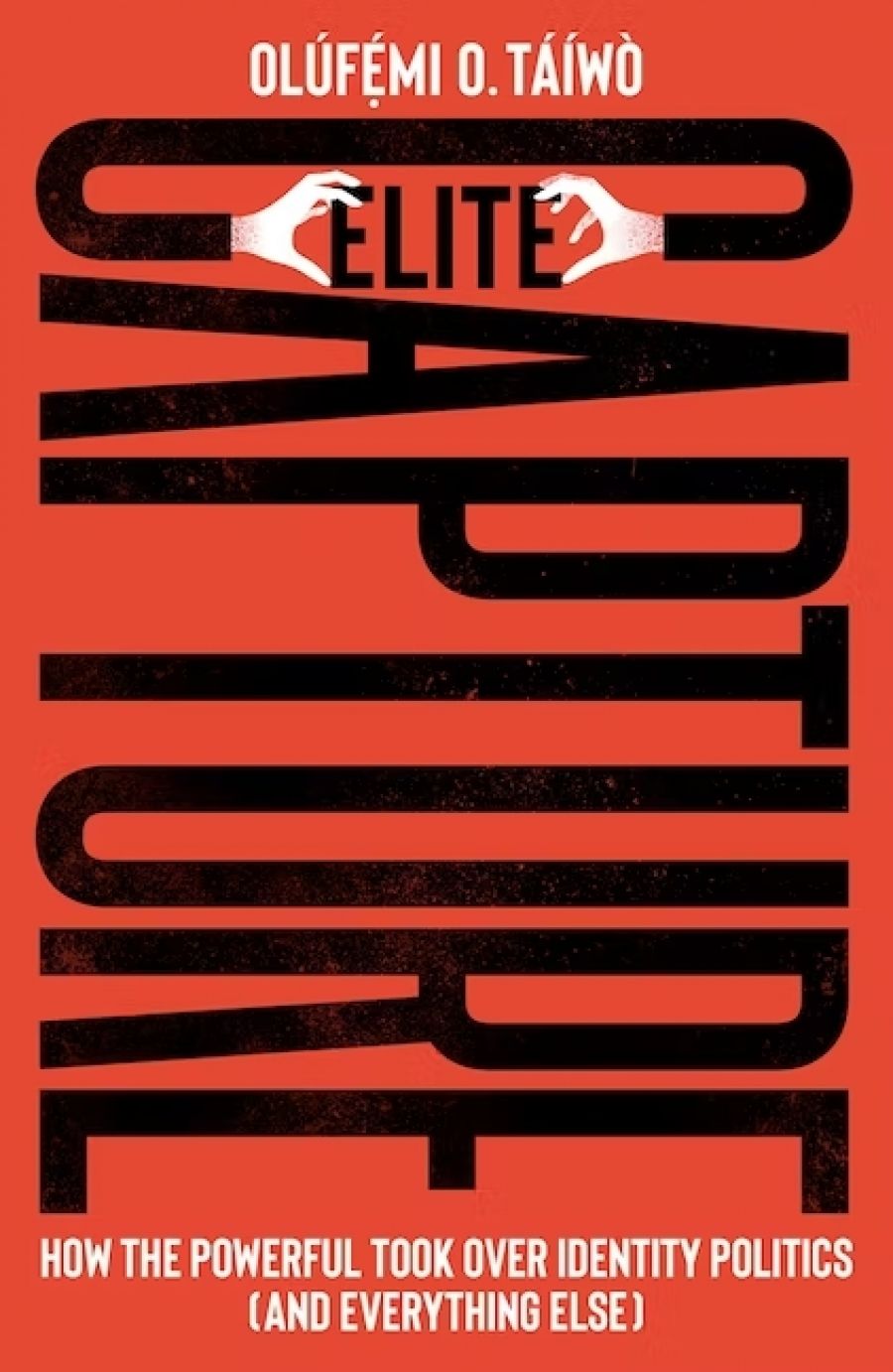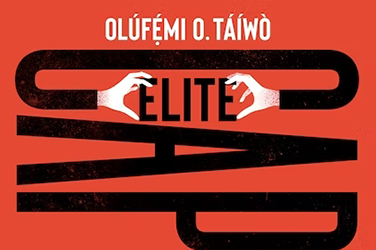
- Free Article: No
- Contents Category: Politics
- Review Article: Yes
- Article Title: A room of our own
- Article Subtitle: Élitist notions of identity politics
- Online Only: No
- Custom Highlight Text:
The list of texts exploring ‘identity politics’ is as long as it is politically promiscuous. From the case against (Identity: The demand for dignity and the politics of resentment, 2018), by Francis Fukuyama) to the case for (literally: The Case for Identity Politics, 2020, by Christopher T. Stout), whether conservative or liberal, if there is a take on identity politics a book has been written about it. The challenge is to pin down a sense of the term on which all the authors could agree.
- Featured Image (400px * 250px):

- Alt Tag (Featured Image): Yassmin Abdel-Magied reviews 'Elite Capture: How the powerful took over identity politics (and everything else)' by Olúfẹ́mi O. Táíwò
- Book 1 Title: Elite Capture
- Book 1 Subtitle: How the powerful took over identity politics (and everything else)
- Book 1 Biblio: Pluto Press, £12.99 pb, 176 pp
- Book 1 Readings Link: https://www.booktopia.com.au/elite-capture-olufe-mi-o-taiwo/book/9780745347851.html
Elite Capture: How the powerful took over identity politics (and everything else) is an expanded version of an essay Táíwò wrote for The Philosopher in 2020: ‘Being-in-the-Room Privilege: Elite Capture and Epistemic Deference’. The viral piece contained a trenchant critique of the politics of deference, or a deferential form of ‘standpoint epistemology’. Táíwò pushed back against the ubiquitous calls he was observing in activist and academic milieux; to step back, ‘listen to the most affected’, and ‘center the most marginalised’. The problem, in Táíwò’s analysis, was that those most marginalised were not in the room. ‘Conversational authority and attentional goods’ were being handed over to spokespeople who fitted appropriate social categories, regardless of, indeed despite, any actual experience or knowledge of the issue at hand. This was causing real harm, Táíwò argued, as it directed ‘attention away from the need to change the social system’ that had marginalised groups in the first place. Those being deferred to, already ‘in the room’, were part of a class of élites whose interests ran counter to those of the group they were supposedly representing. Said élites were more likely to use identity politics to ‘rebrand (not replace) existing institutions’, and to perform ‘symbolic identity politics’ without enacting material reforms. Further, for those deferring, the practice can ‘supercharge moral cowardice’. Thus, deference politics was effectively ‘racial Reaganomics’, a strategy that assumed that attention would convert into material reform for the most marginalised. This, according to Táíwò, was fantasy.
The 2020 essay appears in a revised form as the third chapter of this short book and remains the text’s most compelling section. The rest of the book fleshes out a broader theoretical framework, weaving anecdote, allegory, and theory with varying levels of success. The first chapter, laying out the concept of ‘élite capture’, reminds readers that élites are not fixed groups with stable identities. Élite status is a ‘relationship, in a particular context’ between a smaller group of people and a larger collective. This smaller cadre ‘steer[s] resources and institutions’ that might otherwise serve the many ‘toward their own narrower interests and aims’. The phenomenon occurs everywhere, a ‘system behaviour’, whereby political projects are hijacked by the ‘well positioned and better resourced’.
The second chapter charts Táíwò’s understanding of how élite capture occurs, via fable (‘The Emperor’s New Clothes’ by Hans Christian Andersen) and game theory (C. Thi Nguyen’s philosophy of game worlds). Through a process of ‘value capture’, a game-like environment is created in society, Táíwò suggests. This creates an incentive structure through which behaviour is shaped and a group of élites emerges. Importantly, to blame the élites for this outcome would be to confuse effect for cause. The problem is not the emperor’s townspeople, but the town. It is the environment, the ‘common ground’, the system that produced the élites in the first place. Táíwò asserts that changing the environment, through what he describes as ‘constructive politics’, will lead to material reform for the most marginalised.
The promise of Elite Capture’s thesis is powerful. Numerous thoughtful and insightful ideas are introduced throughout, offering a fresh linguistic framework for a problem as old as the fight against oppression itself. However, as a whole, the text does not fully realise its potential, critiquing representation politics in lieu of interrogating the praxis of identity politics as promised. The anecdotes and threads tantalise yet remain at a frustrating level of abstraction. The elliptical nature of the narrative feels persuasive at times, at others confusing, bordering on contradictory. To centre the most marginalised requires ‘at minimum’ that one ‘leave the room’. A ‘powerfully rigged’ game defines our choices, but humans are creatures who can simply choose to do better. Ironically, in order for the argument to be convincing, we must defer to Táíwò’s experience.
Táíwò assumes that a ‘focus on outcome over process’ will necessarily lead to tangible change for the most marginalised. However, without a grounding in an explicit set of values Táíwò’s thesis is more scaffolding than foundation. How would ‘building power in and through institutions and networks’, as Táíwò suggests, avoid or guard against the very system behaviour described throughout the book? ‘We need to focus on building and rebuilding rooms,’ Táíwò says, ‘not on regulating traffic within and between them.’
The question remains, what is happening in these rooms? Who will inhabit them? If the ends justifies the means, how can we guarantee that the new rooms will be any better than the old ones?


Comments powered by CComment